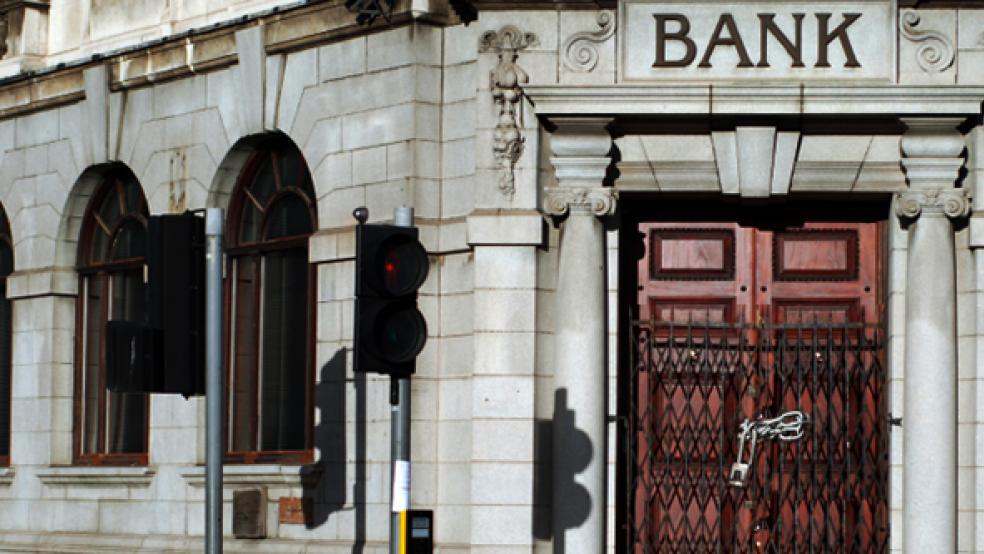Jed Rakoff would like to know why no high-level financial services executives have stood trial in the wake of the 2008 mortgage meltdown. In this, he is very much like millions of other Americans puzzled to watch well-compensated executives face no consequences for running an industry the Financial Crisis Inquiry Commission found to be riddled with fraud.
But unlike millions of other Americans, Jed Rakoff is a Federal Judge who sits on the U.S. District Court for the Southern District of New York. He is also a former federal prosecutor.
Related: JPMorgan Deal Won’t Close the Books on Mortgage Fraud
In an essay to be published in the January 9 issue of the New York Review of Books, Rakoff takes the Justice Department to task for its failure to pursue any high-level cases against financial services executives.
Rakoff is at pains to avoid making accusations. “Every case is different, and I, for one, have no opinion about whether criminal fraud was committed in any given instance,” he writes.
But in the end, he makes it quite clear that he believes the meltdown in the mortgage market, which triggered the financial crisis, was the product of widespread criminal misconduct that has never been punished.
Interestingly, Rakoff’s essay went public on the same day that analysts from Swiss banking giant UBS released a report estimating that the banking industry may still face exposure to $50 billion or more in fines and settlement costs related to the crisis.
The analysts found Bank of America and the Royal Bank of Scotland to be most vulnerable to future suits, but the danger is industry-wide, they found, predicting as much as a 5 percent hit to bank earnings over the next several quarters and a six percent decline in valuation.
How is it possible, Rakoff asks, that in a scandal with such a widespread impact on the economy and huge financial liabilities for the banks involved, no individuals have been held responsible? Justice Department officials, he notes, have never argued with the findings of the Financial Crisis Inquiry Commission or other government officials that the crisis was “the product of intentional fraud.”
DOJ spokesman Brian Fallon, asked to comment on Rakoff’s complaint, said, “The Department has criminally prosecuted thousands of defendants for financial fraud and other related crimes in the last five years, and there are a number of active investigations still ongoing. Even in striking the nation’s largest-ever settlement with JPMorgan last month, the Department preserved its ability to investigate and potentially charge individuals at the company if the evidence supports it.
“The judge does not identify a single case where a financial executive should have been charged, but wasn’t.”
Rakoff’s concern, though, is that DOJ seems to believe some executives were culpable, but has elected not to pursue them. “The Department of Justice has never taken the position that all the top executives involved in the events leading up to the financial crisis were innocent; rather it has offered one or another excuse for not criminally prosecuting them,” he writes.
Related: Justice Makes a Power Play with JPMorgan's Record Fine
What has happened to the DOJ that jailed junk bond king Michael Milken, Savings & Loan fraudster Charles Keating, and Enron CEO Jeffrey Skilling?
DOJ officials have publicly said that one of the impediments to prosecution is the difficulty of proving “intent” on the part of bank executives who may have been several layers of management removed from the people making loans and packaging them up into securities.
Rakoff has no time for this excuse, noting that the doctrine of “willful blindness” long vindicated by the Supreme Court could easily stand in for proof of intent in an industry where the indicators of fraud had been piling up for years.
He also dismisses former DOJ criminal division head Lanny Breuer’s assertion in an interview that in order to prosecute an individual, DOJ would have to prove that the investors who bought securities that would later turn out to be worthless “relied” on the word of the person being accused.
“In actuality, in a criminal fraud case the government is never required to prove—ever—that one party to a transaction relied on the word of another. The reason, of course, is that that would give a crooked seller a license to lie whenever he was dealing with a sophisticated buyer.”
Finally, Rakoff wonders, is the reason there have been no prosecutions the fact that the companies involved are so large and systemically important to the U.S. economy? Attorney General Eric Holder suggested as much in testimony before Congress, and Rakoff finds it troubling.
“To a federal judge, who takes an oath to apply the law equally to rich and to poor, this excuse—sometimes labeled the “too big to jail” excuse—is disturbing, frankly, in what it says about the department’s apparent disregard for equality under the law,” he writes.
Rakoff concludes that if the martgage market collapse was the result of fraud – which he plainly believes it was – “then the failure of the government to bring to justice those responsible for such colossal fraud bespeaks weaknesses in our prosecutorial system that need to be addressed.” - Follow Rob Garver on Twitter @rrgarver
Top Stories from The Fiscal Times:





